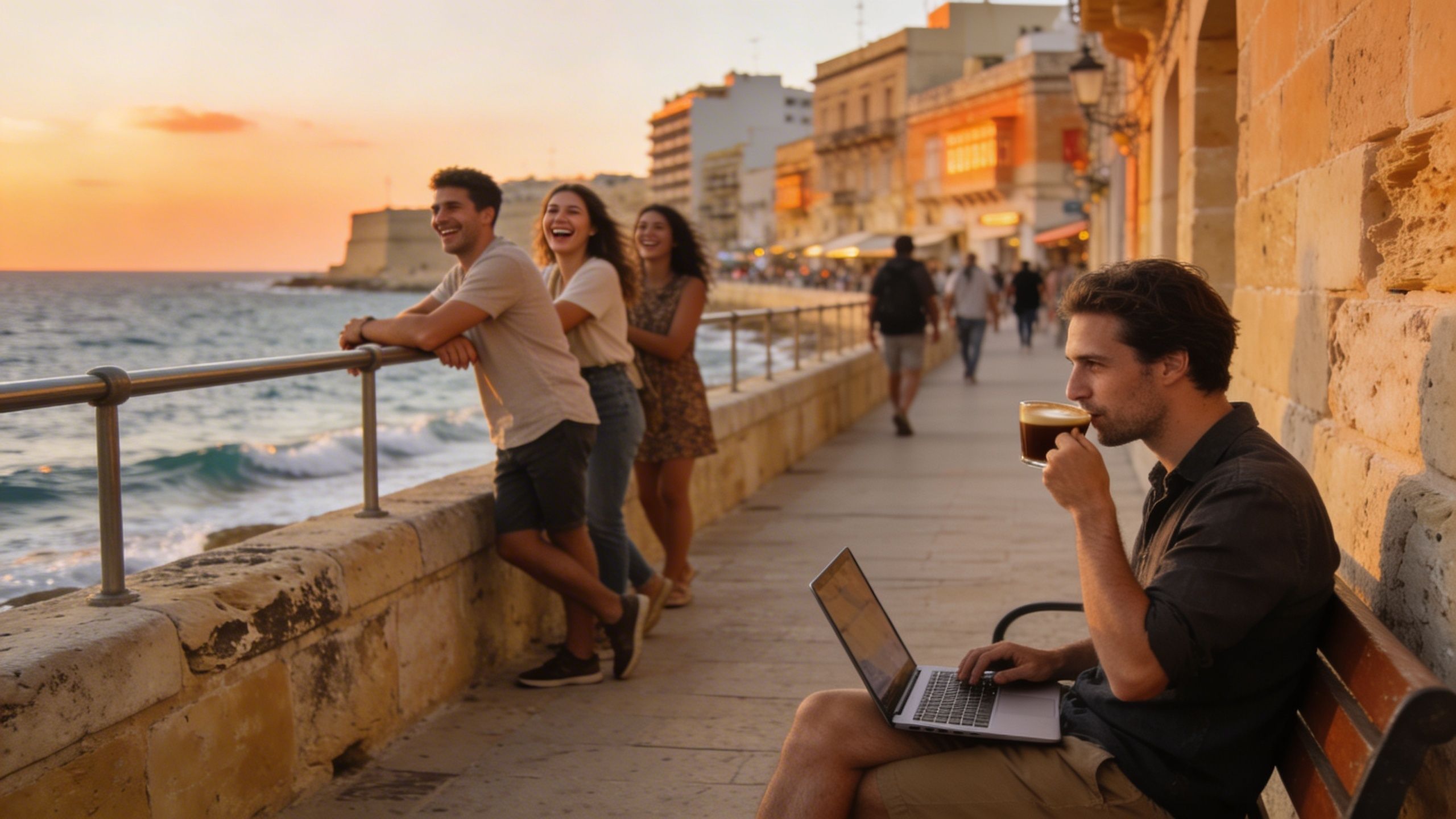Cyprus Money Moves: Banking, Mortgages & Currency Wins
Practical, lifestyle-first guide to banking, mortgages and FX in Cyprus — how to align island living with finance, with current market data and next steps.
Imagine sipping espresso on Ledra Street, hopping onto a fast ferry to Limassol for a sunset swim, then opening your laptop from a sunlit terrace — that rhythm is Cyprus. It’s small enough to feel like a village, but cosmopolitan enough to support fast internet, lively coworking, and a thriving expat scene. For many, the island sells a lifestyle first; money and banks follow. But the banking, mortgage and currency moves you make here shape whether your Cyprus dream is effortless or a paperwork slog. Recent market analysis shows strong transaction values and shifting foreign demand, so your finance plan matters now.
Living the Cyprus lifestyle

Cyprus feels like long lunches that last into golden-hour walks and late-night tavernas. Nicosia hums with coffee shops and startups; Limassol pulses with seafront promenades, marinas and boutiques; Paphos offers slower coastal days and ancient ruins you stumble into on weekend hikes. The climate lets you live outdoors most of the year, and that shows in how properties are used — terraces, verandas and balconies are living rooms. For remote workers, it’s about finding a neighbourhood with cafés that have stable Wi‑Fi, a decent coworking hub, and a friendly local market.
Neighbourhood spotlight: Limassol’s marina to old town
Walk the Limassol Marina at dusk and you’ll see why buyers pay a premium: yachts, waterfront cafés, and new apartment blocks with rooftop pools. Yet a ten-minute stroll inland and you find neighbourhoods with rustic tavernas and lower prices. PwC’s 2024 analysis shows Limassol still takes the lion’s share of luxury transactions, but buyers are increasingly eyeing value in Larnaca and Paphos — the island rewards curious house-hunters who look beyond the marina façade.
Food, markets and everyday life
Picture Saturday mornings at the Larnaca municipal market — oranges, halloumi, fresh seafood — then a long lunch in Kato Paphos. This is not a tourist-only script; locals embrace outdoor social time and small-business cafés. For buyers, that means properties with functional kitchens, outdoor dining space, and proximity to weekly markets are more than perks — they’re how you plug into island life. Also, remember the seasons: summer is social and busy, winter is quieter and perfect for house-hunting bargains.
- Lifestyle highlights: walkable streets, seaside promenades, tavernas with local wine, weekly markets (Larnaca, Limassol), coworking hubs in Nicosia and Limassol, short drives to mountain villages.
Making the move: practical banking, mortgages & currency

Now the practical side: Cyprus uses the euro, which removes FX headaches for euro‑based savers but not for everybody. Local banks offer mortgages to non‑residents, but terms, downpayments and approvals vary widely. The island’s recent record transaction value signals competition and regional price divergence — you’ll get very different lending and yield dynamics in Limassol vs Paphos. Start with a local bank conversation early; it frames realistic budgets and prevents emotional overbids.
Property types and how financing changes your life
Apartments near the sea suit nomads who value short commutes and rental potential; houses in villages offer more outdoor space and lower per‑square‑metre prices. Banks often prefer lending against new developments and modern apartments with proven rental demand. If you want to rent while you’re away, consider lenders’ rental income assumptions — they affect how much they’ll finance and at what rate.
Work with local experts who protect your lifestyle
- Steps to line up finance and banking before you bid: 1. Get a mortgage-in-principle from a Cyprus bank or international bank with Cyprus desks (documents: passport, proof of income, bank statements, tax returns). 2. Open a local bank account early — some banks require an in‑person visit; others accept video verification. 3. Consider currency timing: if you hold a non‑euro currency, arrange phased transfers or forward contracts to smooth FX risk. 4. Ask your bank for their rental‑income stress test if you plan to let the property; this affects the loan-to-value they’ll offer. 5. Secure a local lawyer to check title, encumbrances and permits — financing often hinges on a clean legal report.
Insider knowledge: expat mistakes and money‑wise moves
Here’s the real talk from expats who’ve been there: don’t assume every bank treats foreign income the same; don’t overpay for a “sea‑view” listing if your lifestyle needs coworking and community, not sunsets; and don’t skip small checks like water‑supply connections and building permits. Market data shows prices are rising unevenly across districts — a targeted search beats a scattergun approach.
Cultural and logistical tips that affect money decisions
Cypriot transactions move at their own pace: paperwork is formal, and local relationships matter. Expect some face‑to‑face meetings, a friendly but detailed notary process, and the need for certified translations for foreign documents. For nomads, that means scheduling buffer time for signing and being ready to fax/scan documents quickly when requested.
- Money‑wise moves expat buyers wish they’d known: • Lock FX for large transfers to avoid surprise costs. • Consider an international bank with Cyprus presence if you travel often. • Budget for conveyancing, stamp duty and bank fees upfront. • Ask about rental demand seasonality if buying to let (summer peaks). • Verify utility connections and planning permits before deposit.
Final bit of encouragement: Cyprus rewards buyers who blend lifestyle curiosity with financial discipline. Start with café visits in neighbourhoods you love, then schedule bank and lawyer meetings. Agencies are your local translator for lifestyle-to-finance matching — they point out where a Euro buys more sun or more space. When you combine the island’s easy social rhythm with a clear money plan, that dreamy terrace office becomes very real.
Danish investor and relocation advisor focusing on Portugal and the Algarve; loves coworking culture and expat networks.


